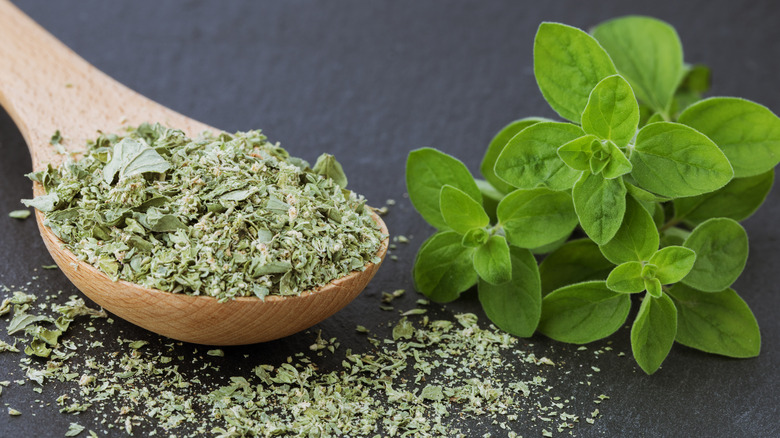Are You Eating Spices With Concerningly High Lead Levels?
Chances are that if you like home cooking, you have a kitchen cabinet stocked up with herbs and spices. Not only do common herbs and spices like thyme and oregano add lots of yummy flavor to food, but many also have documented health benefits and are high in antioxidants (via NIH), making them a win-win addition to healthy cooking. But a new study published by Consumer Reports might make spice lovers be a little more cautious about where they source their herbs and spices from, as many of the most commonly used ones were found to contain high levels of dangerous metals.
"When people think about heavy metals in their diet it's probably the lead in their drinking water. But our tests show that dried herbs and spices can be a surprising, and worrisome, source," said Dr. James E. Rogers, the director of food safety and testing at Consumer Reports, in a statement. The researchers looked at 126 different spices and herbs products sourced from popular grocery stores in the USA and found that 40 of them had levels of contamination from metals like lead, arsenic, and cadmium, that were high enough to be considered a concern.
What spices had the most contamination?
According to the Consumer Reports researchers, there was no single predictor of which herb was contaminated, and labels like "organic" did not seem to make a difference either. Unfortunately, every single sample tested of both thyme and oregano showed concerning levels of contamination, some seriously bad news for lovers of those two common spices so often used in everything from pasta sauce to soups.
Frequent exposure to lead, arsenic, and cadmium, which are the most commonly found contaminants in food, are linked to a variety of health problems including impaired cognitive development, cardiovascular disease, cancer, and kidney problems (via The Environmental Defense Fund).
According to the Consumer Reports researchers, the problem is that people reach for their spices several times a day, meaning that they are risking high levels of exposure. The good news? The researchers did find that many of the samples did not contain high levels of metals, and some herbs and spices outperformed others.


